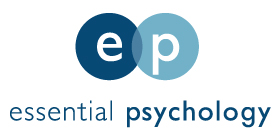Counselling
Counselling is an enabling process which aims to support you in finding your own resources to cope with the feelings you are experiencing or the situation you are facing. It is an opportunity to examine patterns of thoughts, behaviours and feelings that may be impacting on a situation, to explore existing strengths and resources or to develop alternative ways of dealing with the situation. So seeking the support of a psychologist is not a sign of weakness but a sign of facing up to the difficulties you have and doing something constructive to help yourself.
To ensure the experience is a positive one, it is important to choose the right psychologist, counsellor or psychotherapist to assist you to address your concerns and issues. Psychologists have varying specialties, professional interests and approaches, so it makes sense to find a practitioner with whom you feel comfortable, a sense of connection, and who seems to understand you.
Is it for me?
If you are worried, or something is causing you distress, you can arrange an initial appointment to clarify whether counselling might be helpful.
Counselling provides an opportunity to talk about what ever difficulty you may have and to look at your concerns from a different perspective.
If after talking together it seems that some other form of help or support might be more appropriate, we can discuss how to find alternative help.
What to expect?
The initial appointment will last around 80 minutes, and subsequent sessions will be around 50 minutes.
The longer first session is usually necessary to allow plenty of time to gain a detailed understanding of you and your needs. A thorough initial consultation is important to ensure that subsequent sessions are relevant and helpful to you. When you attend your first appointment, we will discuss your goals and expectations. At the end of the initial consultation, your psychologist will give you an indication of what therapy may involve and approximately how many sessions it might take. In subsequent sessions we will generate a flexible plan that you are comfortable with.
It is best to be as open and honest about your problems as possible as counselling is far more effective if you are forthcoming with information – remember, your psychologist can only work with the information you provide. If you omit important information, particularly about an issue that is affecting you, you may walk away feeling dissatisfied about the process. However, if you find it too difficult to talk about an issue, the psychologist come back to that issue at a later date once you feel more comfortable with the process

